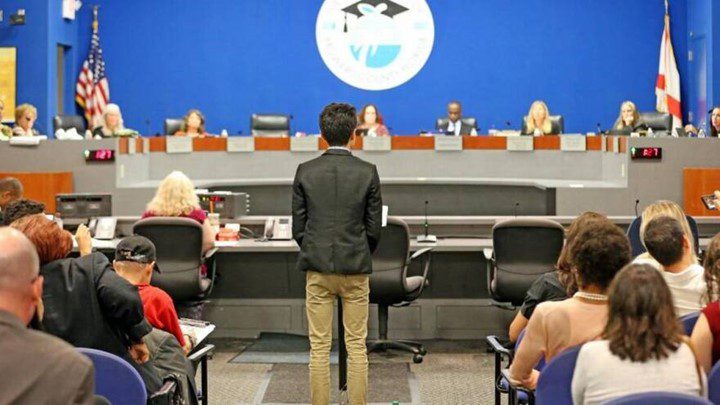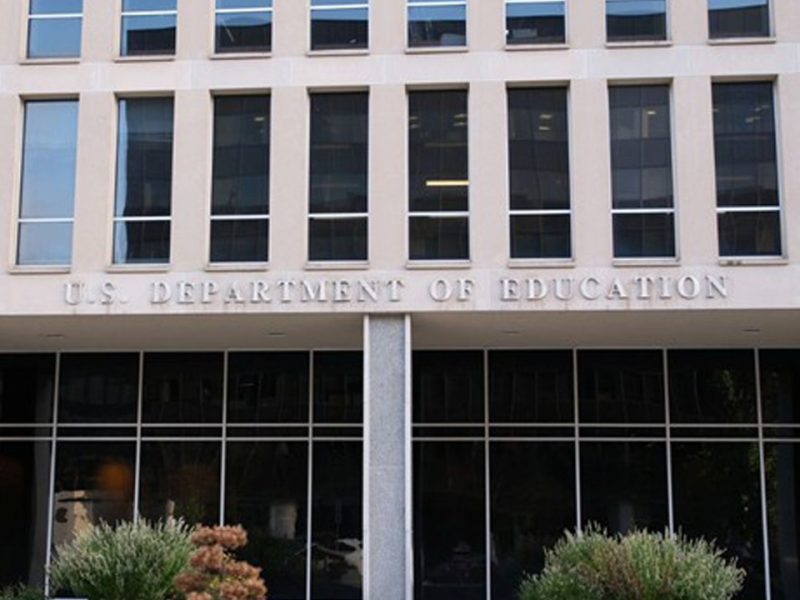
The Broward school district considered abstinence-focused sex ed. Board members rejected it
WLRN | By Kate Payne | March 29, 2023
The Broward County School Board is scrapping a proposed sex education curriculum that would have drastically scaled back instruction on contraception, HIV/AIDS, and how to prevent sexual abuse in the state’s second-largest school district.
At an emotionally charged meeting on Tuesday, board members decided the curriculum — which was proposed by staff — was a “dangerous” overreaction to changes in state law limiting how gender, identity and sexuality can be discussed in schools.
“Why are we making these changes? To send a message to the state?” said Board Member Sarah Leonardi. “Are we truly willing to put children in danger to make a political statement?”
Multiple people shared personal stories of how sex ed gave them or a loved one the language to identify abuse, including Leonardi. She spoke about an elementary-aged family member who she says was groped by a boy on the playground and “immediately” told the nearest adult — using clear, specific language.
“My family member’s mother happens to be a nurse who taught her children proper anatomical terms for their body parts from the very beginning. And so my family member was empowered and got the attention of the adults at her school,” Leonardi said. “What we teach matters. And what we don’t teach has dangerous implications.”
Whether the lessons are about sex abuse, avoiding an unwanted pregnancy or preventing the transmission of HIV, supporters say comprehensive sex education is critical for the health and safety of young people.
“These are important, life-saving conversations that need to happen. And they’re not easy ones to have,” said Board Member Nora Rupert. “But when you remove topics like that, what you do is you close the option to talk to young women and young men about these issues.”
The district’s proposed curriculum de-emphasized physiology, anatomy and lessons on puberty and contraception in favor of an abstinence-only model. That’s at a time when children across the country appear to be beginning puberty at younger and younger ages — some girls even before age 8, according to the National Institutes of Health — and as new cases of HIV are surging in South Florida.
In response to the concerns that the district didn’t adequately consult with students, educators, medical professionals and stakeholders, Interim Superintendent Earlean Smiley said staff will go back to the drawing board.
“In line with the feedback that we’ve gotten from the board and from our constituents,” Smiley said, “I’m asking the board to allow us to pause.”
Broward-considered-abstinence-PDF_curriculum-matrix-of-revisionsProposed changes prompt public outcry from students, advocates
More than two dozen members of the public spoke about the proposal, including current and former district students, and people who said they are survivors of sexual abuse.
“In school I was taught more about shame and secrecy than I was about taking ownership of my own body,” said a public speaker named Diamond Delancy. “I got my period in third grade and cried because I thought I was dying. I was sexually assaulted in high school because no one ever told me that I could say no.”
“Lack of comprehensive sex ed failed me and these changes will further harm students to come,” she added.
Some public speakers spoke against comprehensive sex ed, saying these conversations are better handled at home. Parents have long had the right to opt their children out of lessons on sex ed.
Under the proposal, staff proposed removing lessons in the earliest grades entitled “My Body”, “All Kinds of Families”, “Sexual Abuse Prevention” and “Sexual Exploitation”.
The lessons on sex abuse, which clearly define abuse and provide specific examples, would have been replaced by lessons on “unwanted touch.” Some board members feared it could confuse students and leave them without the specific language they need to report potential abuse.
Other proposed changes to the sex education curriculum included:
- Removing references to and lessons on HIV/AIDS in grades 2 – 6
- Removing a worksheet activity in 3rd grade designed to help kids define their “personal space comfort zones” and set physical boundaries
- Removing the lesson on “Puberty” in 4th grade, as well as references to “sexuality” and “gender roles”
- Removing the “Reproductive System” lessons in 5th – 8th grades, which a district memo says will be taught in 7th grade science classes
- Removing the lesson entitled “Birth Control Basics” in 7th grade and 8th grade and the “Birth Control Methods” lesson for high schoolers
- Removing references to condoms and masturbation in 8th grade lessons
- Scaling back the “Sexual Violence Prevention” lesson for high schools, including removing a learning objective that students will be able to “explain the rape laws for their state”
- Removing high school lessons on “Gender Stereotypes & Lesbian, Gay, Bisexual and Transgender Youth” and “Talking with Partners about Prevention”
New state law prompted the proposed changes to sex ed
The changes to the curriculum and to the district’s policy on Family Life and Human Sexuality were prompted by the passage of the Parental Rights in Education law, and a letter from Florida Department of Education officials that argued that some district policies weren’t complying with it.
According to district memos, BCPS staff justified the decision to remove the lessons on contraception because “the content contradicts Florida Statutes, 1003.46 and 1003.42 which require schools to teach abstinence as the expected standard”.
But state law does not require abstinence to be the only standard, board members pointed out.
“This clearly went beyond what the state requires,” said Board Vice Chair Debbi Hixon. “I think it’s very wrong to just completely get rid of contraception.”
The board did not take a vote on the issue at Tuesday’s workshop. A vote on the curriculum had been scheduled for May 9, though that timeline may be extended as staff rework their proposal.
In the meantime, the district does not have a board-approved curriculum for sex ed, according to the superintendent.
“They never brought this [current] curriculum to the board for approval. So we need an approved curriculum,” Smiley said. “So we’re going to be working with staff, communicating with the state Department [of Education] to see what kind of timeframe we can get to really do the job.”





